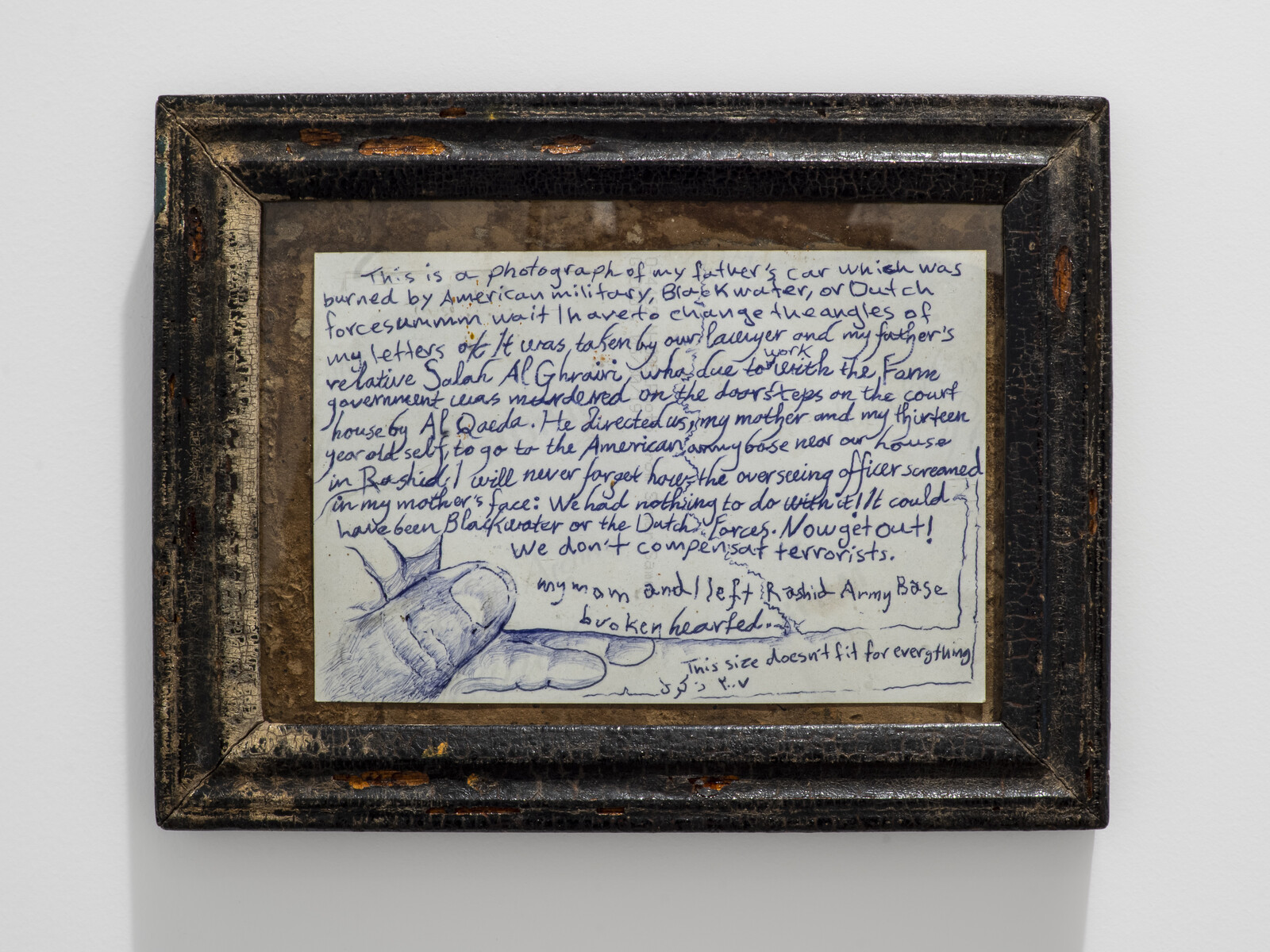Categories
Subjects
Authors
Artists
Venues
Locations
Calendar
Filter
Done
January 20, 2023 – Review
Ali Eyal’s “In the Head’s Sunrise”
Dina Ramadan

“In the Head’s Sunrise”, a quiet yet compelling exhibition of Ali Eyal’s recent drawings and paintings, captures the intricacy and complexity of the young Iraqi artist’s practice; the emotional texture of the work, accomplished through rapid, forceful strokes, is immediately striking. Individually and collectively the works recreate moments from life in Eyal’s hometown—referred to only as small farm—where he came of age amidst the violent turmoil of the US-led invasion of Iraq. The titles of the pieces underscore Eyal’s propensity for narrative along with his acute awareness of its limitations; each enigmatic label ends with “and,” indicating its incompleteness, and suggesting that every encounter is a beginning, like tugging on a loose, seemingly extraneous thread that unexpectedly unravels the entire fabric.
Three heads walking between towns, and (2022) is the immediate focal point of the exhibition and reflects the mythological nature of Eyal’s work. The large canvas hangs like a banner, hands snatching at its sides, attempting to tear through the composition. Three women’s heads attached to makeshift bodies, an assemblage of ill-fitting and dislocated ligaments, dominate the canvas. They are reminiscent of the three fates, their thick black hair unfurling behind them like billows of smoke, each home to …
February 15, 2022 – Review
Sahra Motalebi’s “This Phenomenal Overlay”
Rachel Valinsky

“What is semantic security?” asks an acousmatic voice. This is one among many phrases Sahra Motalebi recites in a twenty-minute recorded track that emanates from a speaker concealed in a wall-hung assemblage to the left of the entrance door. Material Conditions for a Stage (Diorama) (2022) teases the premise of its own title with its slapdash construction and unpretentious materials: a linen curtain peeled back over two metal pylons enframes a rectangular, open-faced cardboard container like product packaging, its insides an irregular topography shaped to hold an object during transport. In other words, the kind of thing that is usually thrown away. But for Motalebi, a dispensable object, like a “dead metaphor,” can have alchemical properties. “What can we perceive?” the voice asks. “This Phenomenal Overlay,” the exhibition’s title, suggests one possible way into the question.
Material Conditions is one of two “dioramas” in Motalebi’s exhibition at Brief Histories. As if reprising the question at the core of Plato’s allegory of the cave—whether we acquire knowledge through sensate experience or philosophical reasoning—the diorama enters into dialogue with another voice sculpture, Resonator #1 (404) (2022). The “resonator,” a potential instrument, is made of decommissioned copper tubing from which jut out two …